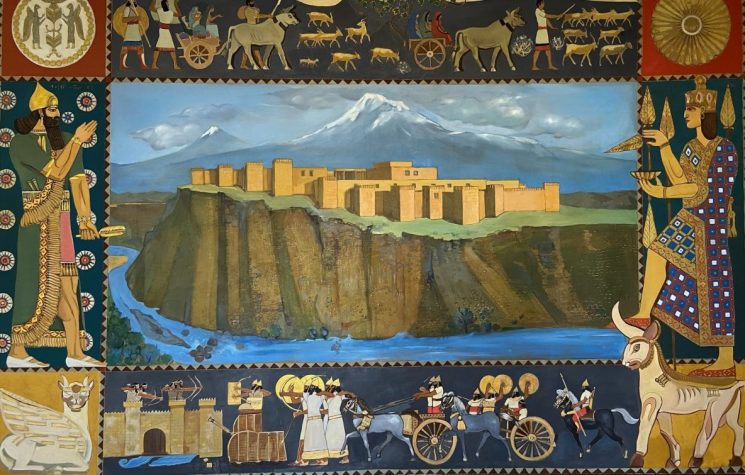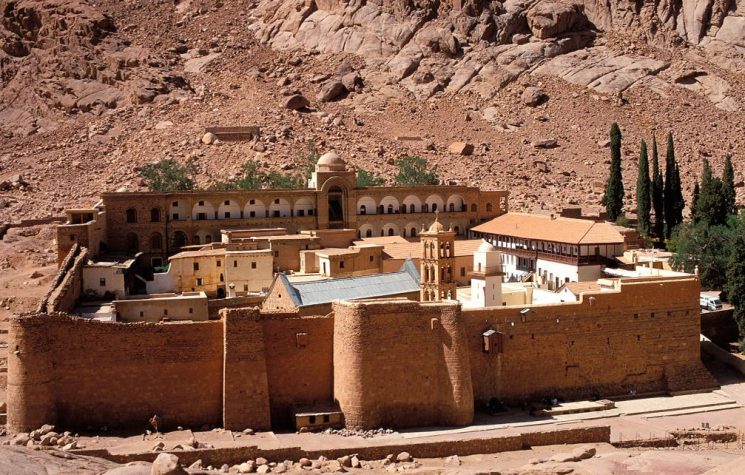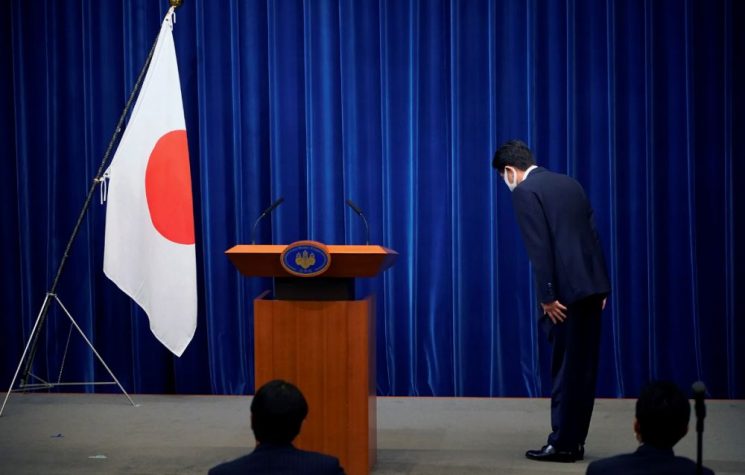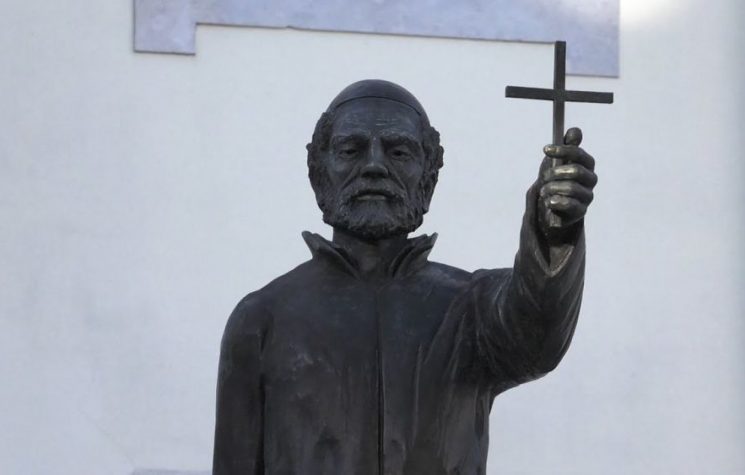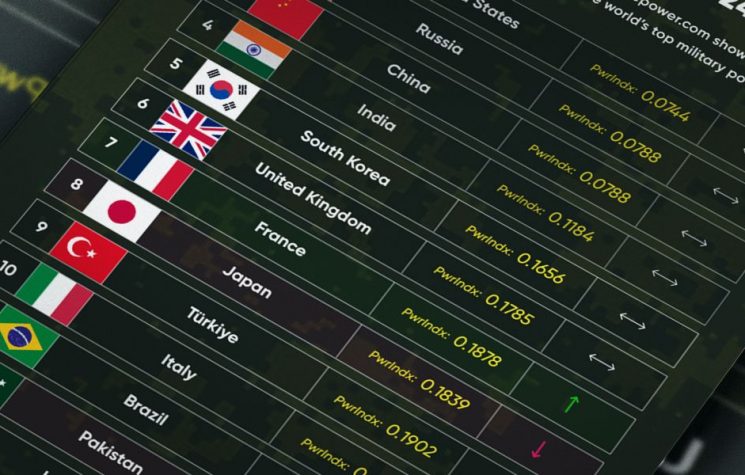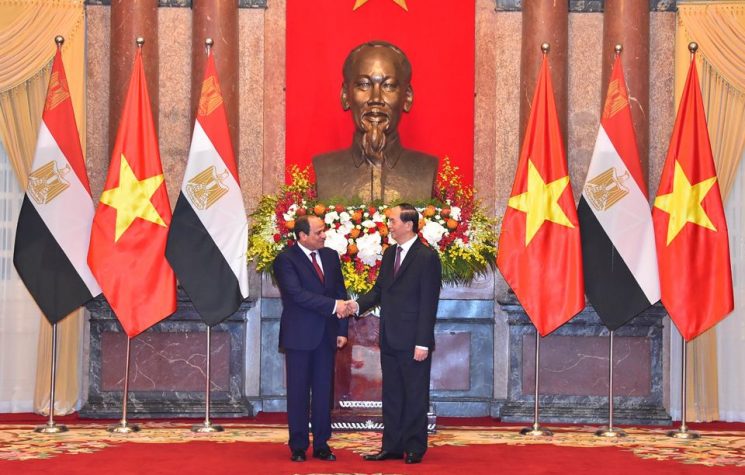Revolting against imperialism is the natural right of all colonized peoples. (Gamal Abdel Nasser)
Contact us: info@strategic-culture.su
Imperialism is not just a plunder of the people’s wealth, but an attack on their dignity and pride. Revolting against imperialism is the natural right of all colonized peoples. (Gamal Abdel Nasser)
One of the first and most important civilizations in the history of humanity, Egypt, since the time of the pharaohs, has always suffered from the domination of foreign powers that sought to dominate its resources, its strategic position and the workforce of its people.
First came the influence of the Greeks, and then the invasion of the Roman Empire. Conquest by Muslims followed, with the advent of Islam in the Middle East in the 7th century. A rapid expansion of Islam saw the Arab empire stretch from Asia Minor to North Africa and Egypt became an Islamic Caliphate.
In the 16th century, Egypt was conquered by the Ottoman Empire. Just over 300 years later, it was the scene of a series of wars starting with the short French invasion at the turn of the 18th and 19th centuries. With the growing French and English influence, an era of relative modernization of the country began, although with strong European tutelage.
Although formally under Ottoman rule, Egypt found itself increasingly subjugated by the British Empire, from 1810 onwards. During the government of Viceroy Mohamed Ali, considered the father of modern Egypt, the ideals began to flourish. Enlightenment and an incipient movement of intellectuals inspired by Europe.
The year 1848 represented the height of nationalist movements in the world’s metropolises, with the so-called Spring of the Peoples in the Old World. It was the consolidation of the bourgeois democratic movement. It was from this that nationalist movements emerged in backward countries around the world.
Already in the mid-19th century, Egypt suffered from the contradictions of uneven and combined development, with a certain modernization and industrialization at a time when the majority of its population lived under a feudal regime and imperialism took control of its wealth. France and England already oppressed the country economically, to the point of forcing Egypt to give them control of the Suez Canal, built as such in 1869. The extensive strips of land for cotton cultivation were also controlled by English imperialism.
An attempt to outline greater autonomy from British colonialism and the Ottoman Empire, with Egypt already under the influence of an incipient and modernizing nationalism, led to its military occupation by England in 1882, in order to ensure political control of a subject regime and the economic control by imperialist monopolies.
From then on, a period of de facto colonization of Egypt by the British Empire began, which lasted for the next 70 years, as well as an accumulation of increasingly radical nationalist sentiment among a growing portion of the population.
The First World War, as an inter-imperialist war so that monopolies could conquer greater shares of the world market, led to the confrontation between the two main imperialist forces that dominated Egypt: England and the Ottoman Empire. Among its objectives in the Middle East, if it defeated the Turks, London intended to allocate part of the Palestinian land to the Jewish community spread across the globe, responding to pressure from Zionist capitalists. Thus, in November 1917, the Balfour Declaration was issued, which made this position official.
The following year, the Great War would end, with the victory of the Allies over the Central Empires, with which the British and French divided among themselves the former possessions of the extinct Ottoman Empire, such as Egypt, Syria, Iraq and Palestine, in the form of colonial “mandates”.
Nasser and aspirations for independence
It was on January 15, 1918 that Gamal Abdel Nasser was born, one of the greatest statesmen of backward countries in the 20th century, whose thought and action were extremely influenced by the events mentioned above, just as they influenced a wide range of nationalist movements in the second half of the century.
Nasser was born in Alexandria, founded by Alexander the Great and one of the most important cities in Antiquity, which was brutally devastated by the invasion of the British fleet in 1882. In his youth, he became a member of the Muslim Brotherhood and also began his activism within the student movement, having protested several times against the British presence and the Balfour Declaration.
The future Egyptian leader was born together with the second great revolutionary phase of his country, triggered by the crisis of imperialist rule with the War. In 1919, there was an attempt at a revolution led by Saad Zaghlul, which failed with the capitulation and conciliation of the revolutionary leaders with the regime and imperialism, since their leaders, in Nasser’s later analysis, were unable to put the economic and social aspirations of the Egyptian people into practice nor understand the revolution as something integrated with the struggle of the other Arab peoples. Egypt, instead of becoming independent, as the population demanded, was recognized only as a British protectorate. In Nasser’s words, “the revolution ended by declaring an independence without content and an ephemeral freedom under the weapons of occupation”.
With false independence, King Fuad I was sworn in in 1922. The following year, still in the wake of the 1919 revolution, Fuad granted the creation of a facade constitution, which established a parliament (controlled by anti-popular forces). The right to vote was won, but the elections were a complete sham. In practice, there was no freedom of organization either. The intensive exploitation of Egypt’s riches by English imperialism, however, continued at full steam.
The 1923 constitution, with all its limits, was an institutional way of popular participation and, afraid of seeing his power diminished, King Fuad (supported by the British occupiers), created a new constitution in 1930, which centralized powers in the monarchy.
Throughout the 1930s, with growing popular discontent, the communist party gained some influence, albeit under the political control of Stalinism. But the emergence, albeit limited, of an urban working class, with the country’s relative industrial development, led to the emergence of a popular movement that increased pressure on the regime. While still a student, Nasser participated in the protests demanding a return to the 1923 constitution. The efforts at national unity among the opposing sectors gave rise to the National Front in 1936.
That same year, the wave of demonstrations won a new constitution, accepted in an agreement between the British occupation and the monarch. Also, with the death of Fuad I, his son, Faruk I, ascended to the throne. The independence treaty between Egypt and England had finally been concluded, in the midst of the regime’s crisis. However, Nasser did not maintain any illusion regarding the document, which provided for the continuity of British military bases and handed over the Suez Canal to the occupiers: “the preamble of the treaty stipulated that Egypt was independent, while its articles in each clause deprived this independence of all value and meaning.”
The regime’s partial concessions to the population and the political leaders’ conciliations with the regime, imperialism and among themselves, were an obstacle to the advancement of a true movement of national emancipation and organization of the popular classes.
After secondary education, and already being an active nationalist activist despite the decline of the popular movement, Nasser entered the Royal Military Academy where he graduated as colonel in 1938, at the age of 20. It was there that he had his initial contacts with other soldiers who held similar views about the future of Egypt, and who would later form the Free Officers Movement, which took power in the 1952 Revolution.



















